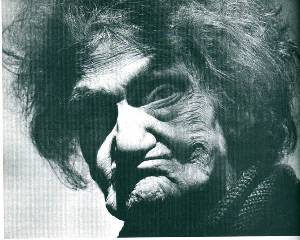Judge not
Recently I have come to realize a couple of things:
1. The certain manifestation of Evangelical Christianity that I allowed to form my malleable adolescent mind encouraged the judging of people. This wasn't exactly the same as the cynical-sit-in-coffee-shop(btw, I'm in Borders in Ann Arbor right now, and there is a band playing live music for some local radio station...I judge this band in bookstore thing to be chungtarded)-and-judge-everyone-who-walks-by sort of judging people that I became empowered by in college and still do all the time today. The Evangelically encouraged people-judging was seemed less petty and more of a necessary part of the entire religious system. If I was going to preach (i.e. evangelize) I had to make judgments. I had to tell people that they were going to hell/heaven, backsliding, not "walking with the Lord" (shudder) etc. I had to tell them that their actions, desires, thoughts were
2. The form of Christianity that controls my mindset today is all about not judging people. Yeah, yeah, I know, "What about closed communion and declaring others to be heterodox, etc.?" Well, I'll get to that later. It is so about not judging people that you’re not supposed to judge yourself even. I recently heard second-hand that an Orthodox Bishop from Canada said that anyone who thinks homosexuals should be celibate should lead by example and be celibate themselves.
Wow. I am pretty down with this not judging but leading by example stuff. I mean how can I expect my judgments to be right if I am not doing what I should. If I do not love other people how do I expect my judgments to love? If I love myself how do I expect to love other people? If I focus on my salvation I think I will learn that I know a lot less than I thought about the salvation of others. Not to mention that leading by example is the most effective way to change their actions. (Two middle aged women just walked past me. Both have dreads tied up on top of their heads. In ahead of the dread pile but above the hair line they both wear dark sunglasses. Following them are two shaggy haired boys of about eight or nine rapidly speaking about and touching a dirty stack of cards. There is also a girl of about twelve. Her hair is also piled up like the women’s, but not dreaded. She has a shirt like the one women and a scarf like the other.)
3. The third thing that I have learned is that it is still necessary to have limits. That is, we have to make judgments. We have to have better and worse, but I do not believe that we can make it very easy to decide what is better and what is worse. The spectrum from the one to the other should be more like the spectrum from specific to general or from person to system. The judgments must be organic, individual, and made by the conscience, and they must always be questioned.
I recently heard an abbess of a monastery in Guatemala tell a story. The monastery runs a large orphanage (several hundred children). Often to correct the children the nuns tell the children to make prostrations. The abbess said that sometimes when a child is really bad in church the child is making prostrations throughout the entire liturgy, and she said that once a little boy needed to make prostrations half the night. She said, “But of course he didn’t want to do them alone, so we must do them with him.”


0 Comments:
Post a Comment
<< Home